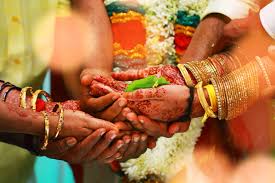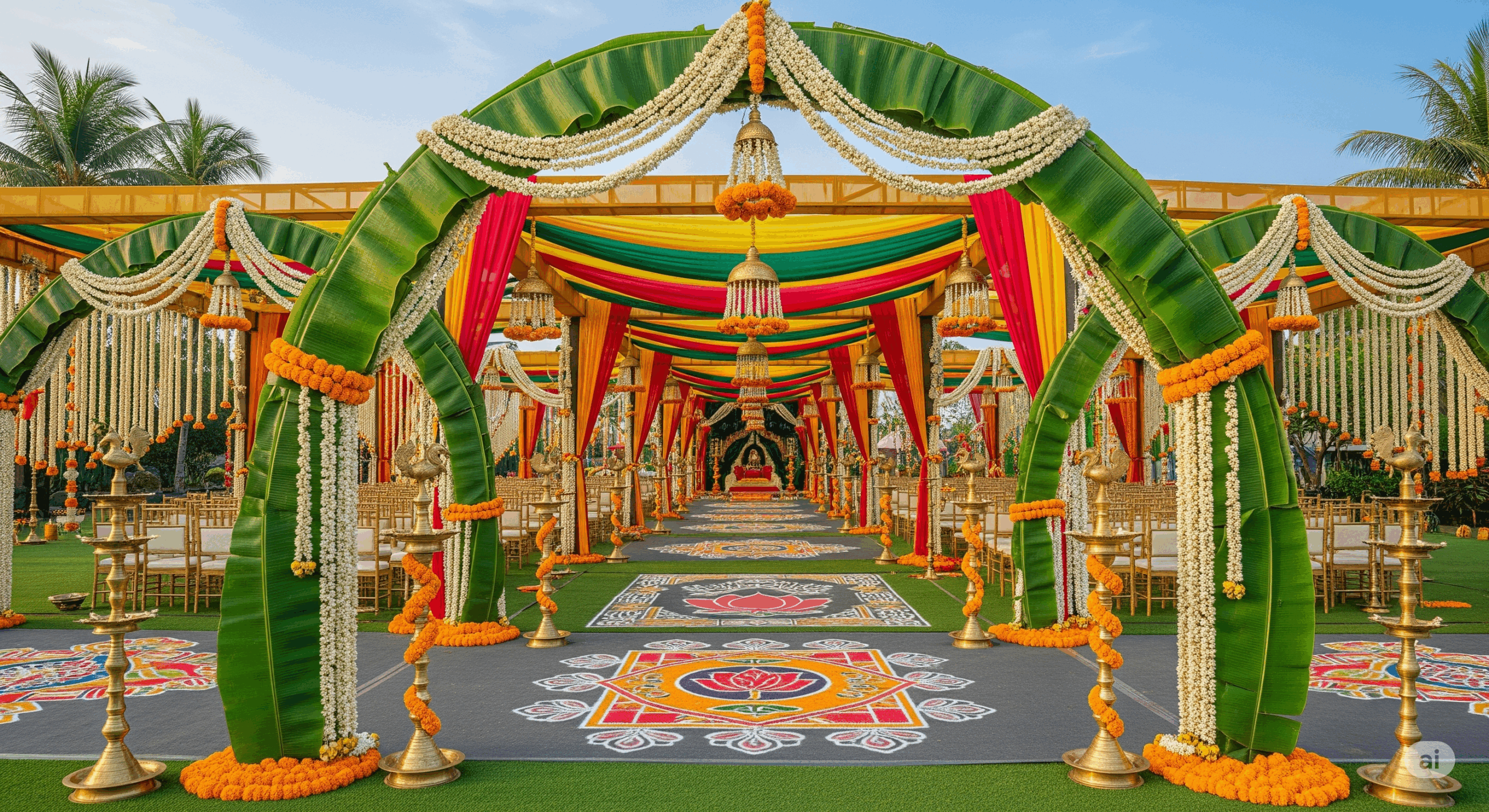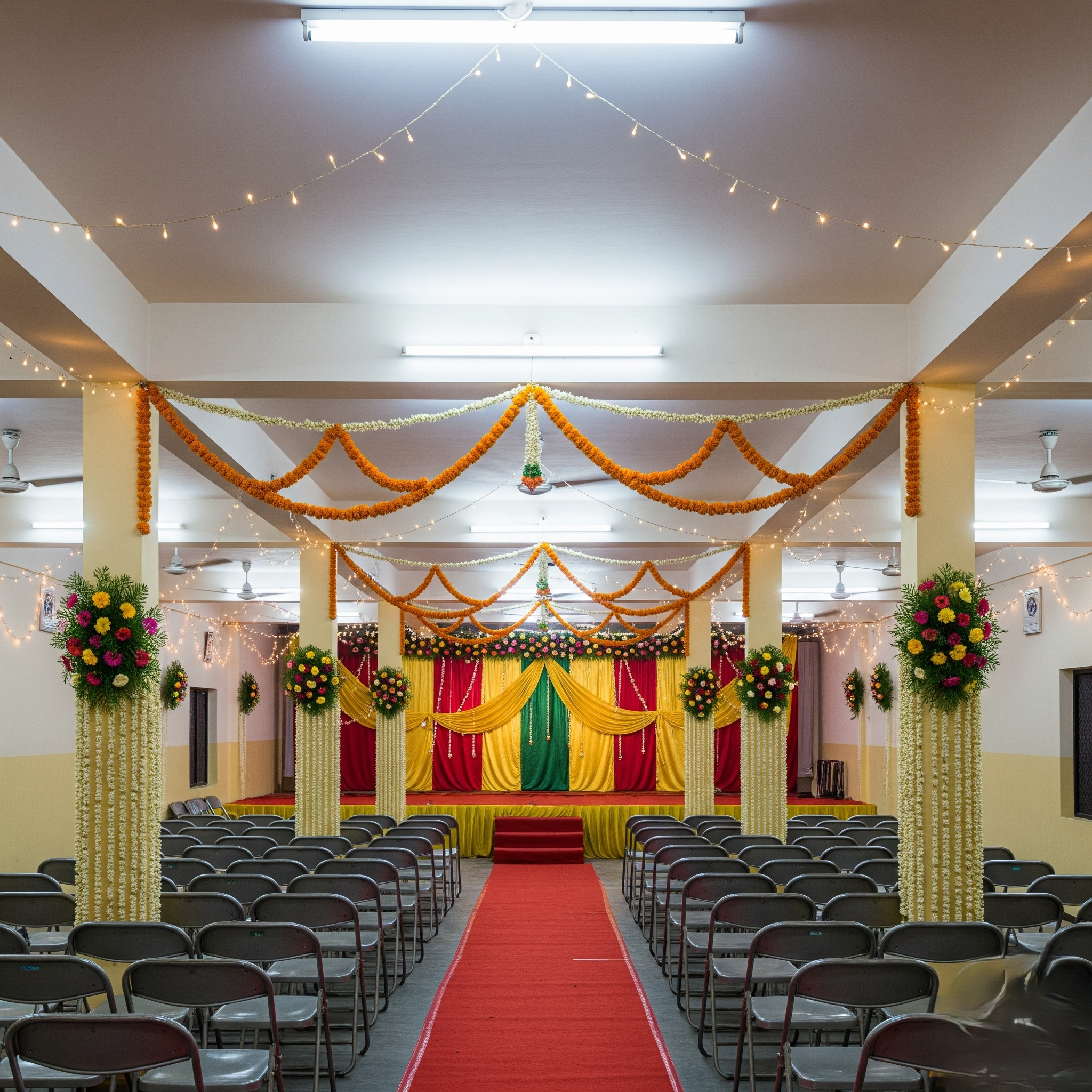Beautiful South Indian Wedding Traditions You Should Know | Rituals & Celebrations
A Culture, Color and Celebration Tapestry South Indian wedding isn’t the union of two souls — it’s a colorful, happy affair that revives age old customs, faith involved, and of course, family ties. South Indian weddings are nothing short of beautiful and they are beautiful for a reason. Apart from the obvious, there is the fact that every ritual, every chant and every sari drape contributes to a very rich cultural tapestry making South Indian weddings altogether UNIQUE.
These weddings have a delightful flavor of both tradition and close togetherness, no matter if held in a contemporary wedding saloon having catering service or at a normal temple. Nagasawa offers a rhythmic beat, works the sambar served on banana leaves and all the elements come together to tell a story. Towards the end of this blog, you will find some of the beautiful customs that you’ll love attending (or maybe even participating) at if you’re attending, or planning, a South Indian wedding.
1. Nichayathartham – The Engagement Ceremony
Following the formal engagement, Nischayathartham, the wedding journey starts. They come together, and it’s meant to be when both families confirm the match and exchange gifts. It is an event that takes place in the bride’s house or a hall with catering service in order to set the stage for grand wedding ahead. Traditional sweets, coconut offerings, and turmeric play vital roles here.
2. Pre-wedding Beauty – Haldi, Mehendi, and More
During the Kashi Yatra or Sumangali Prarthanai (depending on the region), the bride and groom alike are covered in turmeric paste in many South Indian communities. The turmeric also purifies and blesses the couple. Mehendi is more popular in North India and is popular among modern South Indian brides who are blending traditions with elegance.
3. Kashi Yatra – A Fun Groom’s Ritual
The Kashi Yatra, one of the most beloved and light-hearted rituals, is availed by many people. With a rakish smile, the groom feels free to pretend that he renounces worldly life and as a sanyasi is headed to Kashi with him. The bride’s father stops him and persuades him to take up the theme of marriage with his daughter. The charm that it adds to the ceremony always results in some laughter and it is something that this comical exchange does every time.
4. The Grand Entry
A traditional nadhaswaram performance is undertaken behind the bride as she goes into the wedding on the tying day. After this, she and the groom sit on a swing (Oonjal), on it are elders who bless them with turmeric water, rice and fruits. Celebrating balance and support — literally as well as symbolically — this joyful ritual really is.
5. The Mandapam Ritual – Sacred and Meaningful
The wedding ceremony will occur in a mandapam that is creatively decorated, most often organized inside a large wedding hall or banquet space including food. There will be sacred fire referred to as Agni and the couple will perform rituals including:
Kanyadanam – The parents formally give the daughter away
Mangalsutra Dharanam – The groom ties the sacred thread (Thali)
Saptapadi – The couple walks around the fire in 7 symbolic rings, to establish vows with each of the rounds
These sacred performances are representative of the couple joining spiritually and culturally.
6. The Traditional Feast – South Indian Sappadu
No South Indian wedding is complete, without a grand feast served on banana leaves! An average wedding hall with catering service would have local dishes from a variety of regions including:
Sambar, rasam, kootu, poriyal, Appalam, pachadi, pickles,Sweets like payasam, laddu, jangri
The catering makes a major celebration of local dishes and the food is so tasty that guests will drop subtle hints of it for years!
7. Post-Wedding Rituals – Gruhapravesam and Reception
After the ceremony, the bride will be welcomed into her home in the emotional Grihapravesham, and into a reception that will be held, where families coming together will celebrate with music, dance, and too much food – all of which will usually be in a wedding hall with catering services where everyone can celebrate with style!
Final Thoughts: A Celebration of Love and Tradition
South Indian weddings are more than about the event; they are about that legacy, honoring elders, and the start of something new. No matter the venue – be it in a historical temple or a modern wedding hall with catering – the customs unite generations in a colorful and truly meaningful celebration.
Planning a South Indian wedding? Embrace every part of customs with every ounce of joy you can find, because there is a lifetime story of love in every chant, coconut offering, and bite of sappadu.


